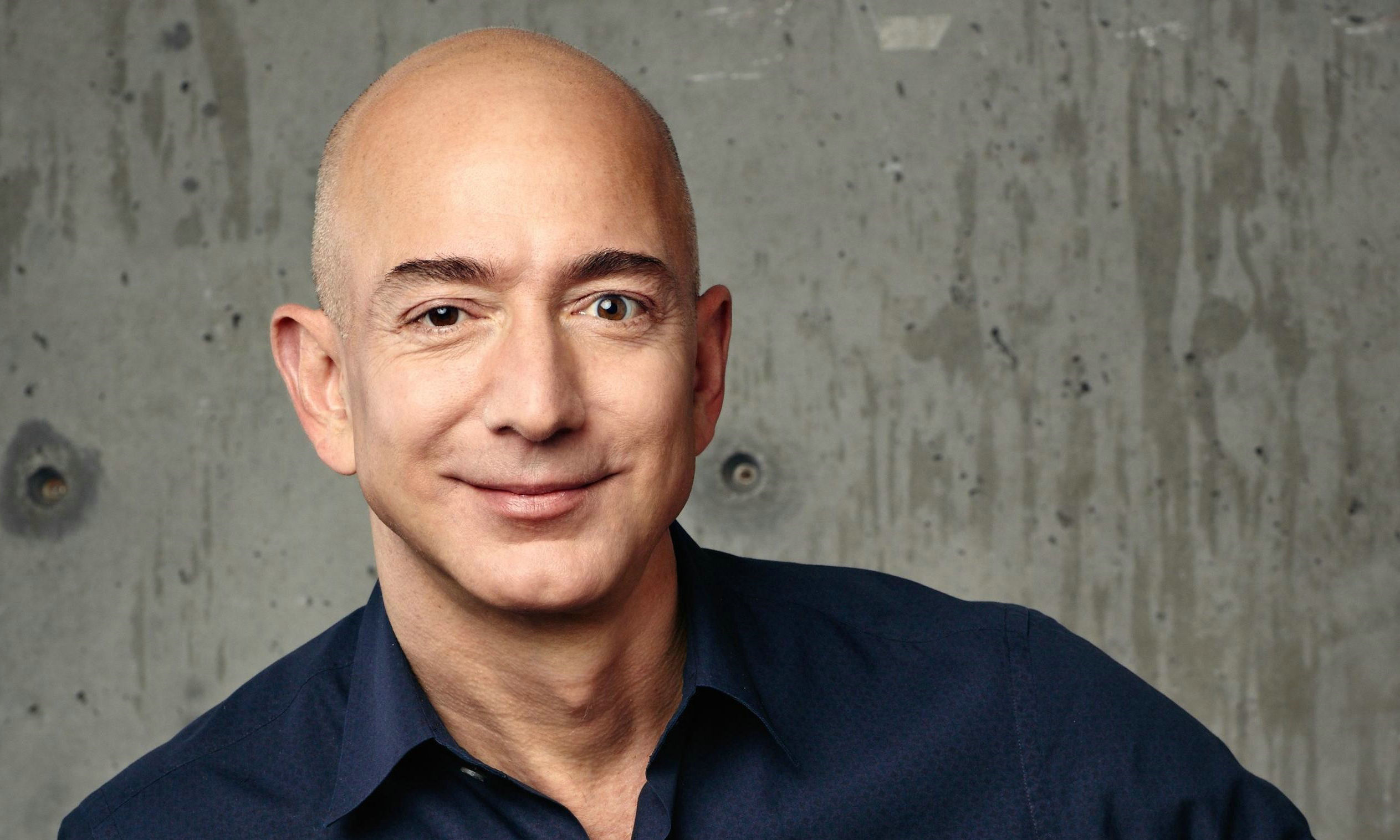Introduction:
"I would rather fail than do nothing." - Sergey Brin, the co-founder of the global Internet giant Google, with his profound gaze, acute insight, and endless curiosity, has shaped our digital world and continuously pushed the boundaries of technology. He is not only the creator of the Silicon Valley legend but also a deep thinker and courageous explorer of the future tech ecosystem. This article will take you into the innovative world of Sergey Brin and reveal the success code and far-sightedness behind it.
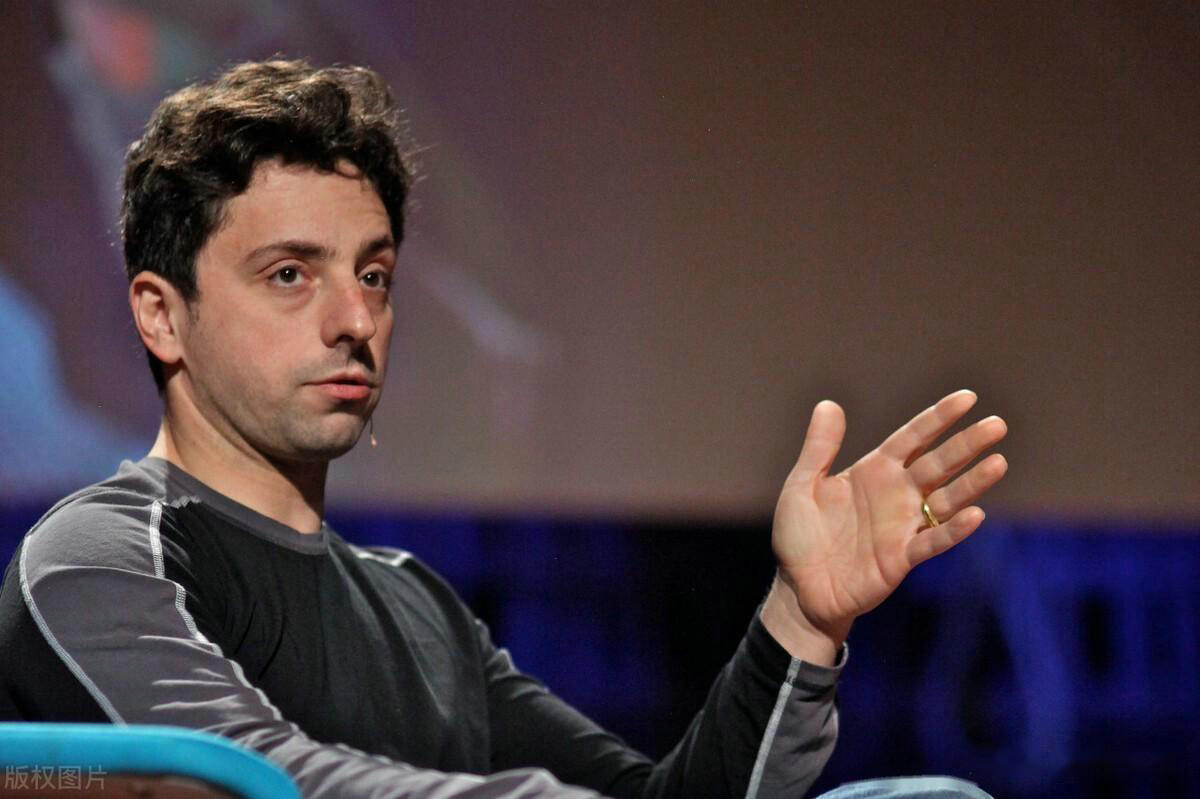
I. From the Birth of Google: An Innovative Experiment That Changed the World
1.The Encounter in the Library: A World-Changing Encounter
The birth of Google started from an accidental encounter in the library. In 1995, Sergey Brin, a doctoral student at Stanford University, met Larry Page at an academic seminar. The two started frequent exchanges due to their common interest - the analysis of web link structures. Once, when looking up information in the library, they found that the existing search engines could not effectively handle massive amounts of information, and users were often drowned in irrelevant or low-quality results. Brin jokingly said, "This is like looking for a book in the library but always being recommended to read a cookbook." This joke inspired their determination to create a smarter and more accurate search engine.
2.Garage Startup: From "BackRub" to Google
In 1996, Brin and Page started their entrepreneurial journey in a friend's garage. The project was initially named "BackRub," meaning to evaluate the importance by tracking the "back links" between webpages. However, this slightly strange name obviously did not meet their expectations for a great cause. So, Brin proposed using the word "Googol" (1 followed by 100 zeros), symbolizing the infiniteness of Internet information. After a spelling adjustment, "Google" was born. This interesting and philosophical brand name has become one of the most famous brands in the history of the Internet.
3.The "20% Time" Rule: A Breeding Ground for Innovation
In the early days of Google, Brin proposed a far-sighted management strategy - the "20% Time" rule, allowing employees to spend one-fifth of their working time on projects that interested them personally. This policy gave birth to many well-known products, such as Gmail, AdSense, Google News, etc. Brin once quipped, "We don't want employees just to come to work but to create history." This corporate culture that encourages innovation and respects individuality has become an important magic weapon for Google to attract the world's top talents.
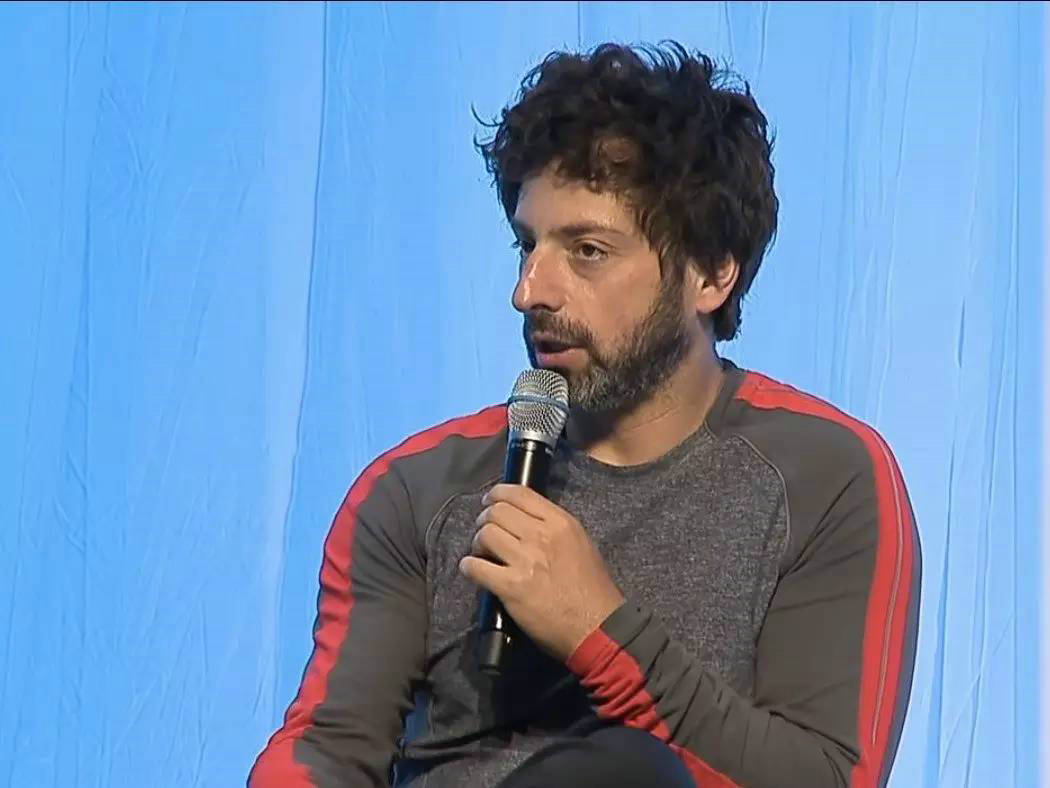
4.The "Skateboarding Show" at the IPO Party: Demonstrating Brin's Personality Charm
In 2004, on the day of Google's listing, Brin celebrated this milestone event in a unique way. He wore roller skates, a knee pad, and a skateboard and skated all the way into the Nasdaq Stock Exchange. This scene not only made the audience on the spot laugh but also showed the world Google's relaxed, free, and敢于 break the routine corporate image. Brin explained, "We want to remind everyone that even on Wall Street, we should keep the love for life and the pursuit of fun."
5.The Origin of Google Doodles: A Birthday Surprise for Brin
The doodles on the Google homepage have now become one of the brand logos, and its birth originated from a birthday surprise for Brin. In 1998, to celebrate Brin's birthday, Page added a simple stick figure to the Google logo. This temporary change was deeply loved by users, and since then, Google has started the tradition of regularly changing Doodles, making it a unique platform for spreading knowledge and commemorating major events.
II. Beyond Search: Diversified Strategy and Innovative Layout
1. From Search Engine to Global Internet Giant: Laying the Foundation for Diversification
Google started with a search engine, but Brin was well aware of the fragility of a single business line. He firmly believes that "true innovation does not lie in inventing new things, but in improving existing things." Therefore, while consolidating the search business, Google quickly expanded to fields such as email (Gmail), online maps (Google Maps), video sharing (YouTube), etc., building an Internet product matrix covering all aspects of users' lives. As of 2023, Google has 8 products with over 1 billion active users globally (Statista data), and the diversified business layout has built a strong competitive barrier for it.
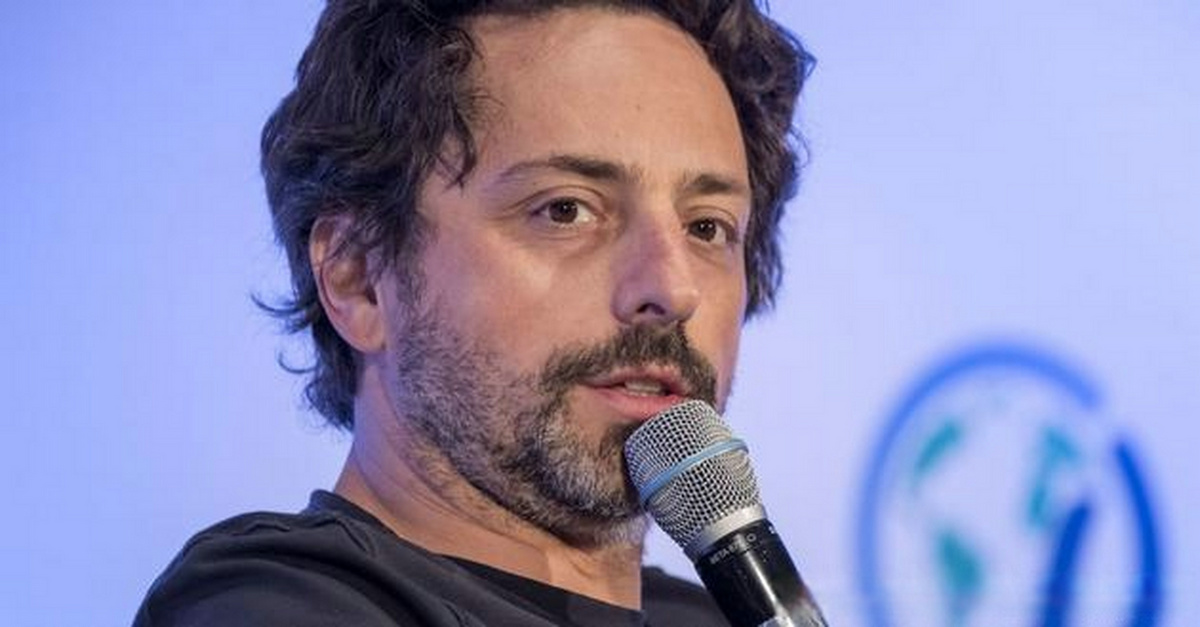
2. Innovation in Advertising Business: Creating the Digital Economy Engine
Brin knew that advertising is the lifeblood of the Internet economy. Therefore, he led the development of the two major advertising systems, AdWords and AdSense. AdWords allows businesses to accurately target potential customers, and AdSense provides a simple profit-making method for website owners. This two-wheel-driven advertising strategy completely revolutionized the traditional advertising model and brought huge profits to Google. In 2027, Google's advertising business revenue reached 200 billion US dollars, accounting for nearly 80% of the company's total revenue (company financial report data). Brin's advertising strategy not only promoted Google's commercial success but also shaped a new pattern of the global digital economy.
3.Entering the Mobile Operating System: Rewriting the Era of Smartphones
Facing the explosion of the smartphone market, Brin made a decisive decision to acquire the Android company and turn it into an open-source mobile operating system. This move broke the duopoly situation of iOS and Windows Phone, enabling Android to quickly occupy the leading position in the global smartphone market, with a market share once exceeding 80% (StatCounter data). Brin once said, "The goal of Android is to allow as many people as possible to use the Internet, no matter where they are and what devices they use." This vision was perfectly reflected in the success of Android, which not only enhanced Google's influence but also promoted the improvement of the global Internet penetration rate.
4.Layout of Frontier Technologies: Exploring the Infinite Possibilities of the Future
While Google grew into a global Internet giant, Brin did not stop but set his sights on frontier fields such as artificial intelligence, biotechnology, and space exploration. He founded the Google X laboratory and incubated a series of "moonshot projects" such as self-driving cars (Waymo), smart glasses (Google Glass), and drone delivery (Project Wing). Among them, Waymo has become the leading enterprise in the global autonomous driving field. As of 2024, it ranks first globally in terms of both technical maturity and market strategy (Navigant Research report). Brin's frontier layout enabled Google to take the lead in the new round of technology races and also depicted a blueprint for the future development of human society.
5. Investment and M&A Strategy: Weaving a Global Innovation Network
Brin also weaved a global innovation network through large-scale investment and M&A. The two venture capital institutions, Google Ventures (now renamed GV) and CapitalG, have invested in over 300 companies globally, involving multiple fields such as artificial intelligence, healthcare, and fintech. Brin once said, "We hope to work with the most innovative entrepreneurs through investment to jointly promote the progress of technology." This open and inclusive investment strategy enables Google to share global innovation achievements and maintain its leading position in the technology field.
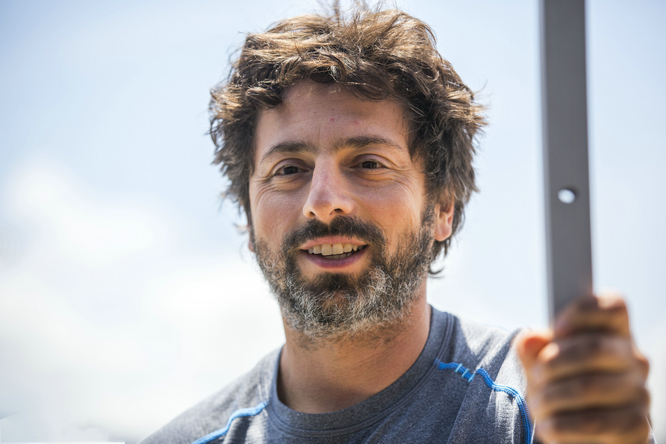
III. Exploring the Unknown: The Zealous Believer of Frontier Technology
1. Google X Laboratory: Brin's Tech Dream Factory
Driven by Brin, Google established the mysterious Google X Laboratory in 2010, which is a secret base specifically designed to breed "moonshot projects". Here, Brin encourages the team to challenge the impossible and boldly explore the most cutting-edge fields such as artificial intelligence, biotechnology, and space exploration. He once said, "The purpose of setting up Google X is to solve those seemingly out-of-reach problems, even if it means failure." The projects such as self-driving cars (Waymo), smart glasses (Google Glass), and drone delivery (Project Wing) birthed by Google X have now become the innovation benchmarks in their respective fields, strongly proving Brin's persistent pursuit and outstanding foresight of unknown technologies.
2.The Pioneer of Self-Driving: The Rise of Waymo
Brin's fanaticism for self-driving technology started from an accidental conversation in 2009. At that time, Sebastian Thrun, a professor at Stanford University, showed him a test video of an early self-driving car. Brin was deeply shocked and immediately decided to fully support this project, which eventually gave birth to Waymo. After years of R & D investment and field testing, Waymo's technical strength gradually emerged. In 2016, Waymo became the world's first self-driving company to cancel the safety driver. As of 2025, Waymo has completed more than 20 million kilometers of public road testing, and its self-driving taxi service has been put into operation in multiple cities, providing safe and convenient travel experiences for hundreds of thousands of people (company data). Brin's foresight and investment in self-driving have enabled Google to occupy an undisputed leading position in this revolutionary technology field.
3.The Adventurer in Life Sciences: Calico and Verily
Brin's exploration of the technological boundary does not stop at the physical world, and he is also full of curiosity about the mystery of human life. In 2013, he founded Calico Life Sciences, which focuses on longevity research, attempting to crack the aging code and delay or even reverse the aging process. In addition, he also promoted the establishment of Verily Life Sciences, which is committed to using big data and artificial intelligence technologies to solve complex medical and health problems. Although these two projects are still in the scientific research stage and have not yet been commercialized, Brin firmly believes: "We invest in long-term, high-risk projects because we believe they have the potential to bring about far-reaching social changes." This forward-looking investment in life sciences shows Brin's great enthusiasm for unknown technologies and deep concern for human well-being.
4.The Call of the Stars and the Sea: The Power Behind SpaceX
Although Brin is not the founder of SpaceX, his enthusiasm for space exploration coincides with that of Musk. In 2008, when SpaceX was facing a bankruptcy crisis, Brin, along with other investors, injected 20 million US dollars into the company to help it tide over the difficulties. Brin once said, "If we can reduce the cost of space travel, then humans will have the opportunity to become a multi-planetary species." SpaceX has achieved remarkable results in the following years, including the successful recovery of rockets, the launch of the manned Dragon spacecraft to the International Space Station, and the start of the Starlink satellite Internet project. Brin's support for SpaceX is not only the pursuit of his personal space dream, but also the embodiment of the firm belief in human exploration of the cosmic frontier and expansion of the living territory.
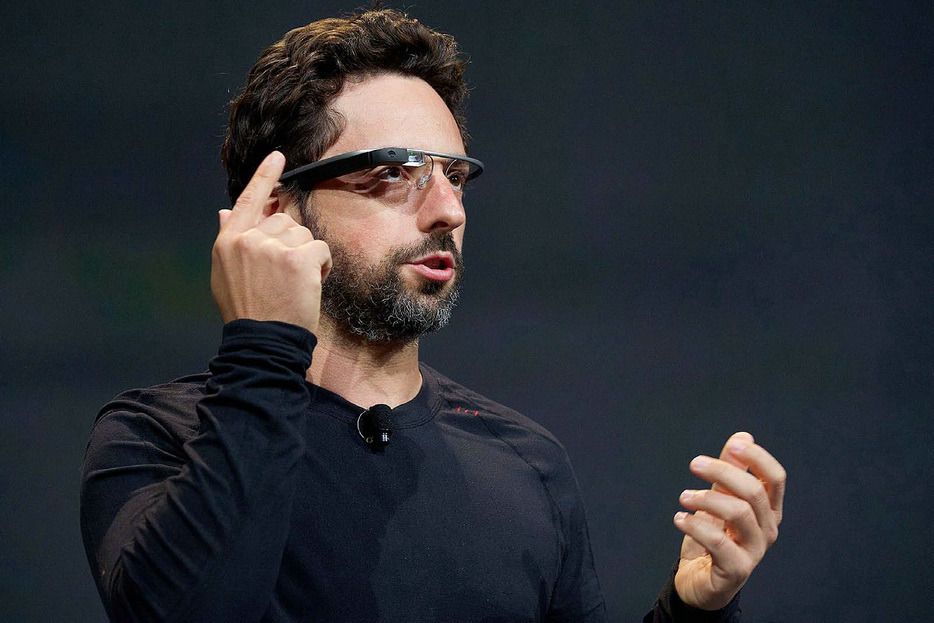
IV. Future Outlook: Harmonious Coexistence of Technology and Humanities
1. Technology Oriented towards People: From Search Engines to AI Assistants
Brin has always firmly believed that the true value of technology lies in improving human life. The birth of the Google search engine is the best interpretation of this concept. It has greatly shortened the time for people to obtain information, improved work efficiency, and changed the way of knowledge acquisition. With the development of AI technology, Brin has further promoted the popularization of intelligent assistants such as Google Assistant, making it a powerful assistant in users' daily lives. According to statistics, more than 1 billion devices worldwide use Google Assistant (Statista data). Brin once said, "We hope that AI can not only answer questions, but also understand you and provide you with personalized services." This people-oriented application of technology reflects Brin's expectation of the deep integration of future technology and human life.
1. Data Privacy Protection: The Bottom-line Consensus between Technology and Humanities
In today's era of rapid technological development, the issue of data privacy has become increasingly prominent. Brin clearly realizes that respecting user privacy is the basis for the harmonious coexistence of technology and humanities. He actively promotes Google to formulate strict regulations in data collection, storage, and use, improve transparency, and launch a series of privacy protection tools, such as privacy checks and automatic deletion of historical records. Brin emphasizes, "Privacy is not a luxury, but a necessity for everyone." This high attention to user privacy demonstrates Brin's adherence to technological ethics and a profound understanding of the bottom line of the harmonious coexistence of technology and humanities.
1. An Advocate of AI Ethics: Shaping a Responsible Technological Future
Facing the possible social impacts of AI technology, Brin actively advocates the establishment of an AI ethics framework. In 2018, he participated in the establishment of the AI Ethics Committee, aiming to guide Google and the entire industry to follow ethical principles when developing and applying AI technology. Although the committee was later dissolved due to controversy, Brin did not give up his exploration of AI ethics. He pointed out, "We must ensure that the development of AI is in line with human values and serves the well-being of all mankind." This persistent pursuit of AI ethics shows Brin's profound reflection on the future development of technology and his long-term consideration of the harmonious coexistence of technology and humanities.
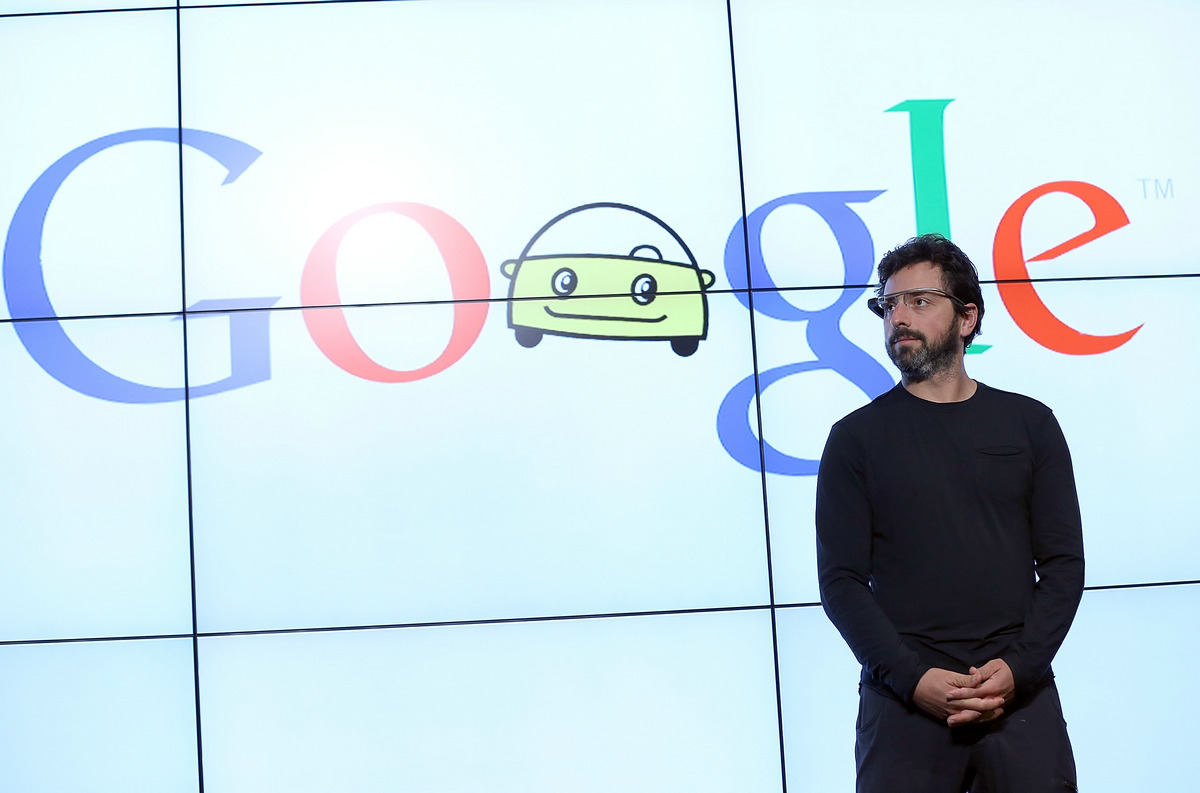
1. The Initiator of Environmental Protection Actions: Technology Empowers a Green Future
Brin firmly believes that technology should contribute to solving global environmental problems. He has personally participated in and promoted a series of environmental protection projects, such as the use of renewable energy in Google data centers, carbon neutrality commitments, and investment in clean energy start-ups. He has promised to achieve net zero emissions in all supply chains and product life cycles by 2030. Brin said, "We have the responsibility to use the power of technology to help the earth move towards a sustainable future." This action of closely combining technology and environmental protection demonstrates Brin's firm belief in the harmonious coexistence of future technology, humanities, and nature.
Conclusion:
Sergey Brin, this innovator in the technology industry, with his unique perspective and persistent pursuit, has not only changed our way of information acquisition, but also shaped a whole new technological ecosystem. His story tells us that true innovation stems from a profound understanding of human nature, fearless exploration of the unknown, and deep thinking about the relationship between technology and humanities. Under Brin's leadership, Google and even the entire technology industry will continue to move forward bravely on the road of innovation and create more possibilities for human society. Brin's exploration journey continues, and we look forward to him leading Google to discover more miracles in the technological starry sky and write a new chapter for the progress of human society.
